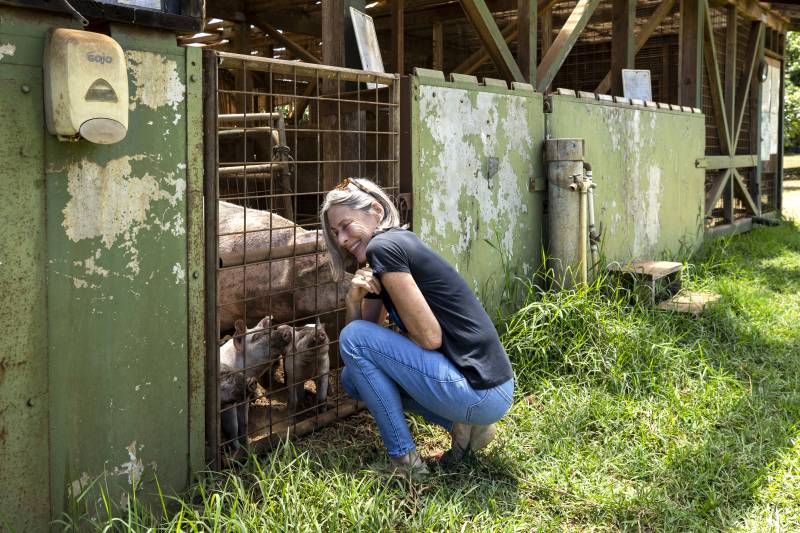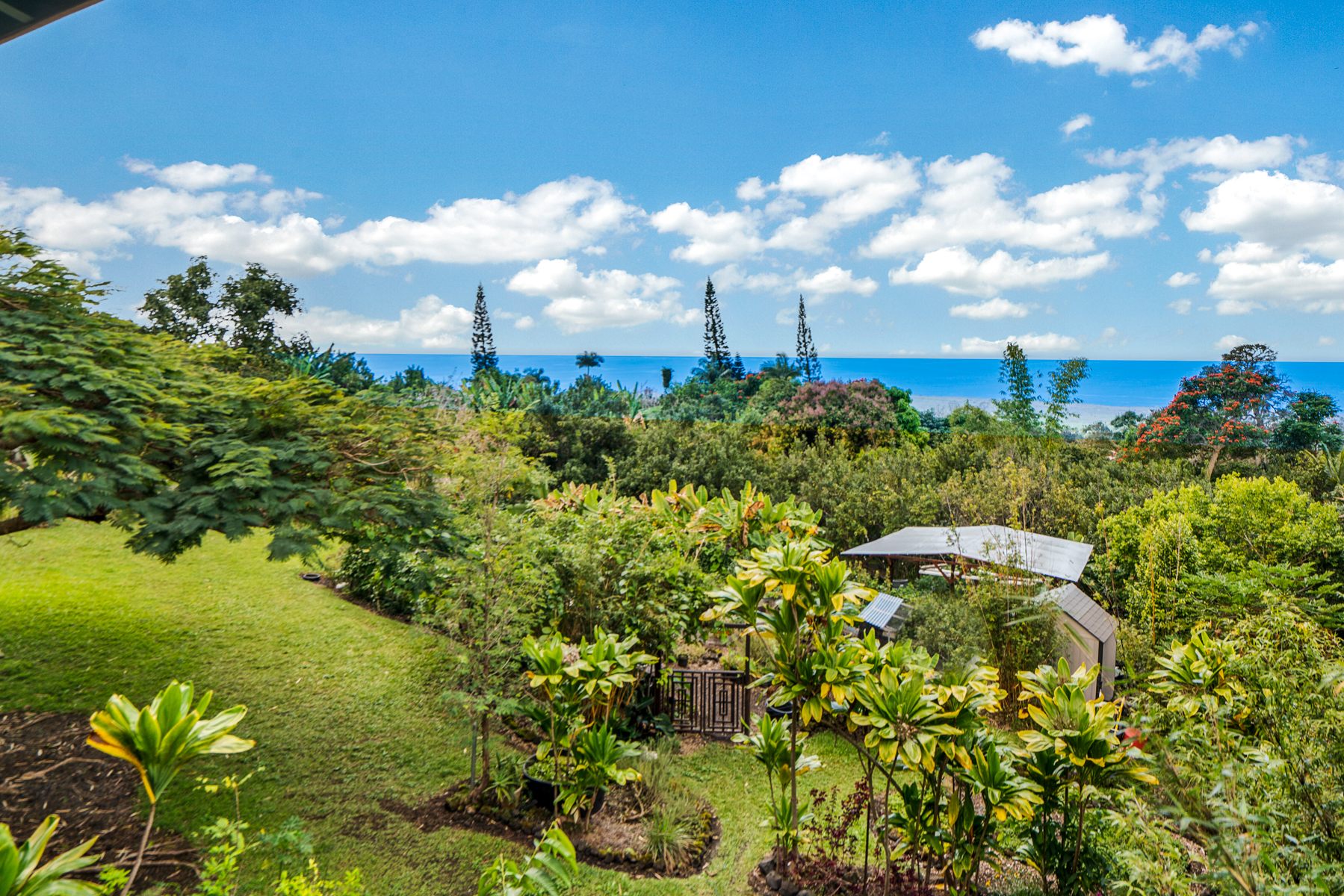Hawaiʻi Court Upholds Restrictions on Rentals on Agricultural Land
In my previous blog post on recently passed changes to Hawaiʻi County “Big Island” zoning code related to building additional homes built on a single property (now called ADUs rather than ohana dwellings), I concluded that there were property tax implications. I will get to those in my next blog. But first I want to answer another question I was asked, which was whether the language in that bill allowing one of up to three ADUs to be used as a short term vacation rental (also called TAR or Transient Accommodation Rental).
The question was, “does this mean I can have a TAR on property zoned agricultural?” The answer is, the Hawaii State Supreme court just ruled “no.” But let me recap.

I would personally love to stay at a working farm when I vacation – but Hawaiʻi State law does not allow short term rentals on agricultural land. Luckily my job lets me hang out with piglets.
Recap of 2019 Big Island Vacation Rental Bill for Unhosted Rentals
It started with the adoption of the first Big Island regulations and registration for unhosted short term vacation rentals in 2019. When Bill 108 was introduced and passed, it allowed for some existing rentals to be “grandfathered in” with a non-conforming use permit. However, properties with agricultural zoning were not allowed to apply. The only exception would be properties where the homes were built prior to 1976 when land use classifications were adopted.
Recall that in Hawaiʻi, the State has land use classifications, and county zoning sits on top of those. The County code has to comply with State law, and the section of the Hawaiʻi Revised Statutes, HRS 205-4.5, pertaining to agricultural district precludes short term rentals unassociated with agriculture. In other words, you can use your additional farm dwelling for seasonal workers, but not for tourists on vacation.
A group of owners of vacation rentals in locations like the Kohala Ranch subdivision, where the zoning is agricultural but there is clearly little or no farming or ranching in this upscale neighborhood, decided to appeal the Countyʻs policy to the State Land Use Commission. As I predicted, the Land Use Commission upheld the Countyʻs code. The homeowners then appealed to the Third Circuit Court, which reversed the Stateʻs decision. So the Land Use Commission appealed up the chain, and in September 2024 the Hawaiʻi Supreme Court ruled unanimously in favor of the State Land Use Commission.
The ruling states: “There is no indication either in the statute’s text or its legislative history that the legislature intended to allow for farm dwellings to be used as short-term vacation rentals untethered from agricultural purposes,” read the verdict. “Rather, transient accommodations are antithetical to the Legislature’s intent.”
Can I Do a Hosted Vacation Rental (Transient Accommodation Rental) in an Additional Farm Dwelling?
Given that the Hawaiʻi County Council is finalizing changes to Bill 121 regarding TARs (i.e. short term vacation rentals) which are hosted by the on site owner or manager, the next question is whether the Hawaiʻi Supreme Courtʻs decision affects the near final version of the bill. The short answer is that it validates the language of Bill 121 which states unequivocally: “the transient accommodation rental shall not be permitted in an additional farm dwelling.”
Currently Bill 122, a companion to Bill 121, would eliminate the bed-and-breakfast provisions of the County Code, simplifying the overnight accommodations regulations to a single pathway for registration.
What CAN you do with your agricultural zoned property? That question I addressed more comprehensively in this earlier post.

This working Honaunau organic farm is a perfect example of the kind of property I believe should be able to supplement income with farm stays. MLS 712724
In my mind, the real question here is how to distinguish between properties in Kohala Ranch or all those Puna subdivisions whose owners testified against the regulations but admitted they are not farming or ranching and just want to supplement their income so they can afford to live where they want…and dedicated farmers and ranchers who have agricultural production with razor-thin margins that can be destroyed with a year of bad weather or bad prices for their product. For the latter, a steady stream of farm stay income could help offset the volatility of their farm or ranch income, and keep them on the land.
There has to be a way to do both. Maybe changes to the property tax regime will help pave the way. Stay tuned for that update in my next post.




Leave your opinion here. Please be nice. Your Email address will be kept private, this form is secure and we never spam you.